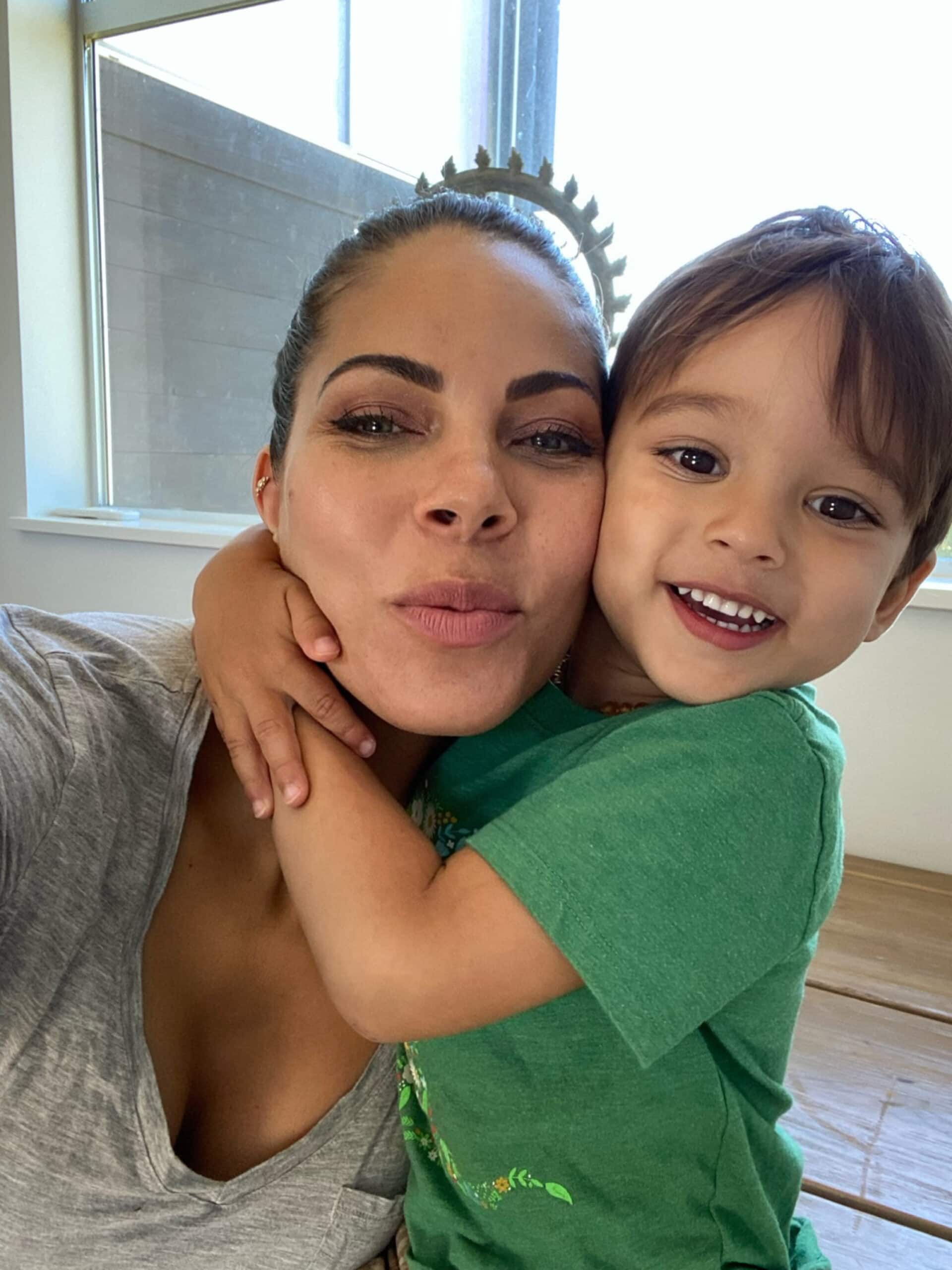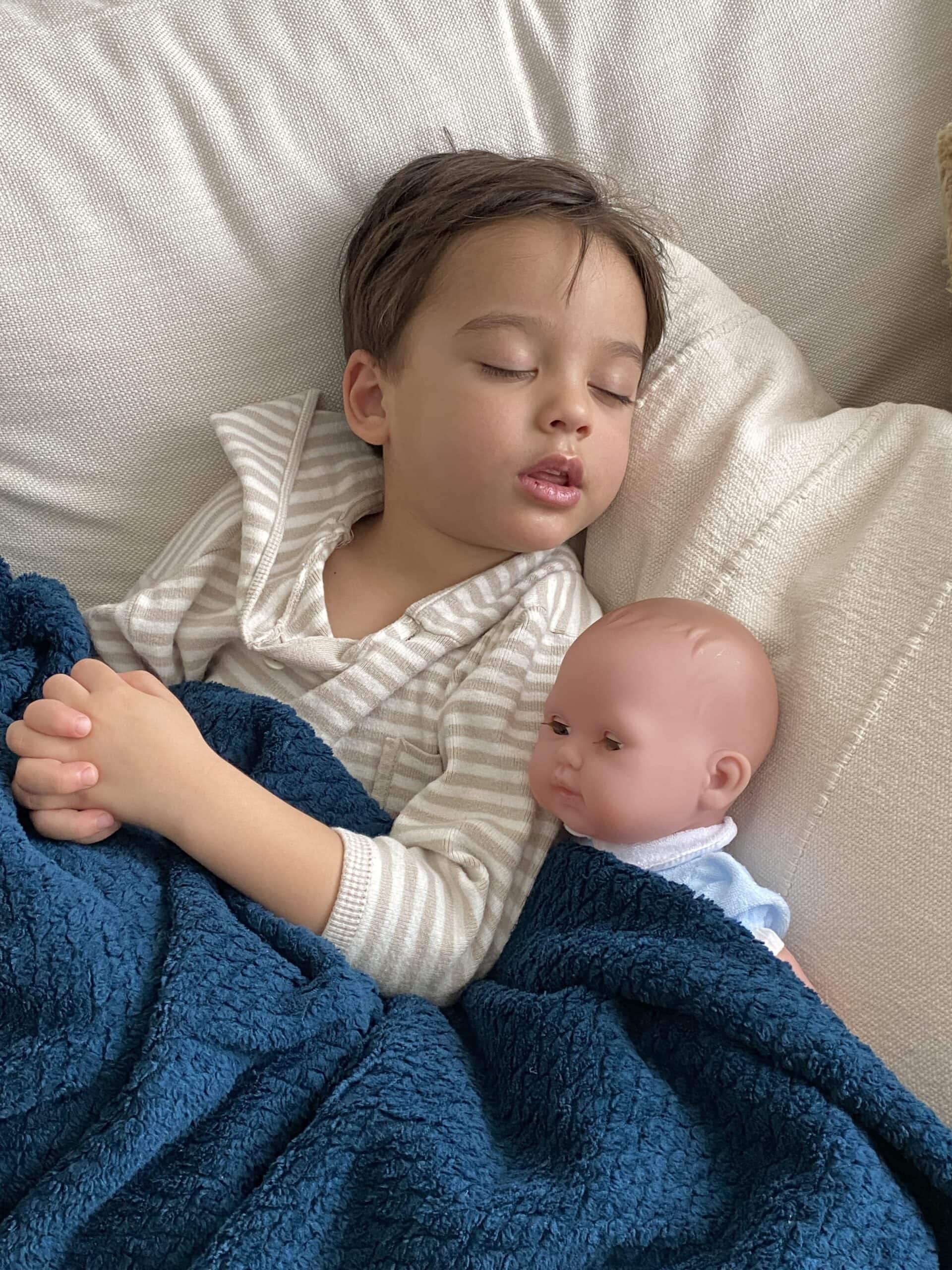
10 Terrible Threes Parenting Tips
Anyone who has ever spent a significant amount of time with a toddler will tell you that the terrible twos don’t just disappear when a child turns three. For some families, their rambunctious little one causes so much more “terror” as a three-year-old than they ever did at two.
If you currently have a three-year-old stomping their way through your house, you know all too well how difficult this parenting phase can be. Temper tantrums and sleepless nights have probably brought you to your wits end on more than one occasion.
The first thing I want you to know is that you’re not alone. This is a totally normal phase for children, and it’s one that is surprisingly important for their development. But I know that doesn’t make it any easier to deal with.
If your three-year-old is testing boundaries and learning how to express their emotions, it’s important for us as parents to do our best to respond appropriately. And if you’re living with chronic illness like myself and my children, it’s also important to manage stress-levels and avoid large cortisol releases throughout the day. To read more about how stress may cause autoimmune flare-up, see this post.
With the right mindset, you can see even the most difficult moments in a more positive light. Easier said than done, I know. But with the practical tips I’m going to share, you can support your kids and help them navigate this challenging stage as smoothly as possible. And, hopefully, create a more peaceful and stress-free atmosphere as your family navigates this next phase.
10 Terrible Threes Parenting Tips
My youngest son is now four years old, and he marks the third time around for me raising a child through this phase. All children are different, but my youngest son’s strong personality really allowed me to put the lessons I had previously learned to good use.

Keep Your Cool
It’s important to stay calm when your child acts out. Their brain isn’t developed enough yet to properly handle emotions. As their parents, it’s our job to set an example for how they should respond when they’re overwhelmed with emotion.
Try to remember that your three-year-old is constantly learning. Keeping your cool in those tough moments will teach your child how to respond appropriately, which will greatly benefit your child down the road.
There is even research that supports the association between positive parenting in toddlers and young children in stressful situations and an increase in the size of specific parts of the brain.
Put Yourself In Their Shoes
Are you able to recognize your three-year-old’s needs at any given time? In other words, how easily can you recognize the root of their misbehavior? This practice, known as attunement, is when you put yourself in your child’s shoes.
When you’re attuned to your child, you’re thinking more about why they are misbehaving rather than how they are acting. That way, you can meet their needs and prevent a similar meltdown in the future.
Choose Your Battles
You don’t have to turn every moment into a lesson. If you try to correct every little thing your three-year-old does, you’ll both be miserable. Try to let the small things go. Chances are, those little things won’t be a big issue down the road.
However, if it’s a safety issue or, more significant bad behavior, that’s the time to act–calmly.
Give Your Child Options
A lack of control is one of the many reasons your three-year-old acts out. Of course, no three-year-old should actually be in charge, but you can definitely make them think they’re in control. The easiest way to do this is to give them options.
For example, if your child frequently throws a fit while getting dressed in the morning, give them three different outfits to choose from. Or if they’re suddenly a picky eater who refuses to eat dinner, get them involved in picking out meal options.
Giving your child choices provides them with a sense of control. This, in turn, will help to keep them from throwing a tantrum.
Use Positive Reinforcement
If you only focus on the negative, you’ll never survive the terrible 3’s. Positive reinforcement is crucial for your child’s development.
Praise them for good behavior. Support them with enthusiastic encouragement. Tell them how proud you are of them. Every child wants to be praised, and when you’re trying to instill good habits, a little positive reinforcement goes a long way.

Be Consistent
Consistency is so important. More specifically, consistently addressing the same misbehaviors.
If you correct your three-year-old for something once but then let it go when it happens again, you’re sending mixed signals. By consistently addressing those problem behaviors, your child will have a clear understanding of what’s expected of them.
Create A List Of Rules
Speaking of knowing what’s expected of them, consider creating a list of family rules. Keep it simple, using words and phrases your three-year-old can understand. Frequently remind your child of the rules and praise them when they follow them.
Some good examples of family rules to include in your list are “Listen to mommy and daddy” and “use your inside voice.”
Give Them Time To Calm Down
The best thing you can do for your child when they are in the middle of a temper tantrum is to give them time to calm down. Trying to discipline them or even talk to them about their behavior is practically impossible when they’re in the throes of a meltdown.
Once they have settled down, you can then talk to them about the situation, their feelings, and why their actions were inappropriate or unacceptable.
Keep Your Little One Occupied
A bored child is a troublemaking child. Especially during the terrible twos and threes, if your youngster is bored, they are significantly more likely to cause trouble, just to get your attention.
You can help keep your child out of trouble by giving them plenty of age-appropriate things to do. Keep kid-friendly activities on hand, like games, crafts, or interactive toys.
Consider Creating Or Adjusting Your Routine
A child who is hungry or tired is far more likely to act out. If your three-year-old is having frequent episodes of bad behavior, consider adjusting your current schedule or creating a new routine to ensure they never get too tired or hungry.

Remember, this is an important time in your child’s development, and they’re relying on you to guide them through it.
I hope that by using some of the techniques mentioned above, the terrible threes won’t be as terrible. If it’s any consolation, you’re not the first parent to go through this, and you certainly won’t be the last. You got this!
You can find more parenting tips and read more about my life as a full-time mommy on the blog.

